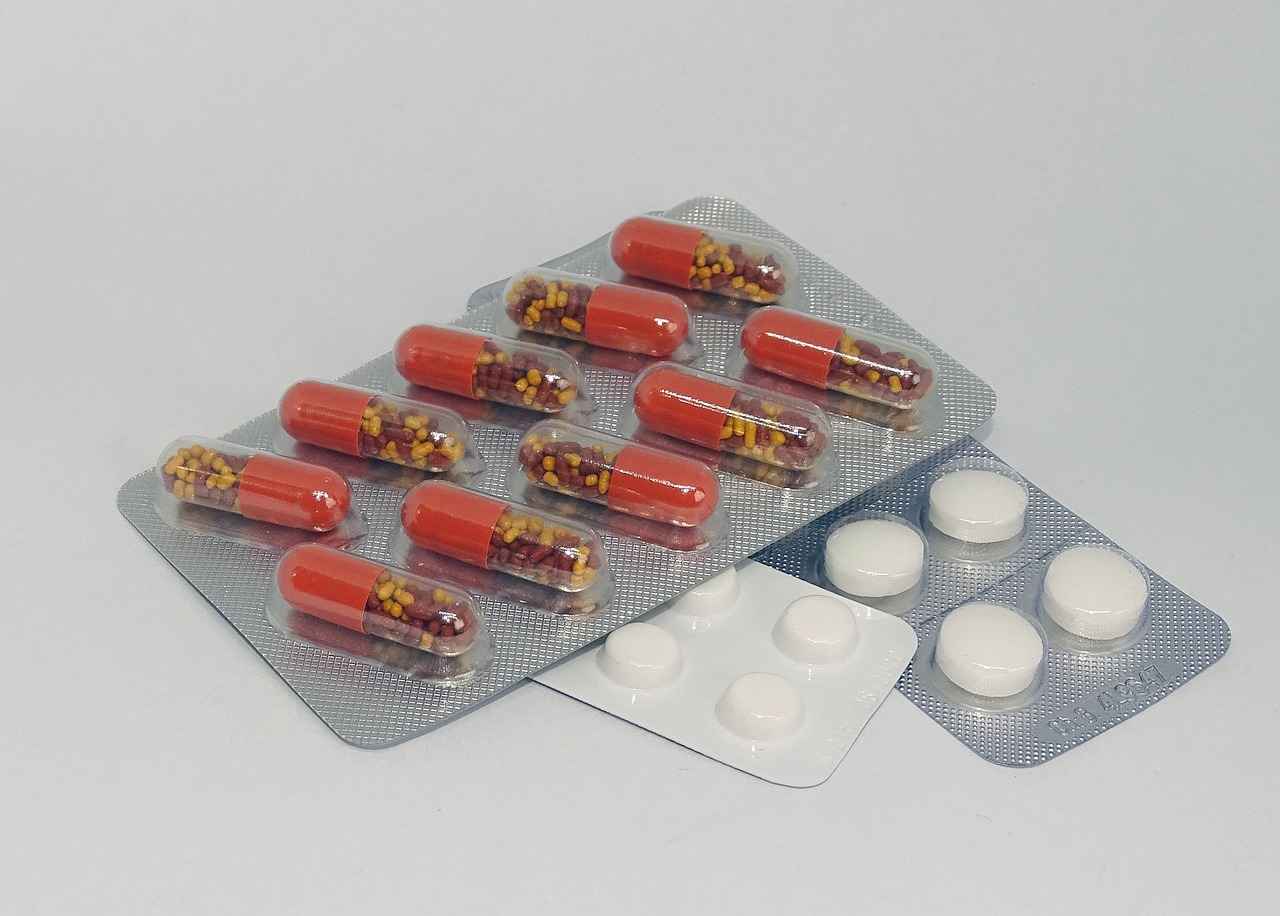This article delves into the cognitive benefits of phosphatidylserine, a vital phospholipid for brain health. It plays a significant role in enhancing memory, improving mood, and boosting overall cognitive function. Understanding its impact can lead to better brain health and performance.
What is Phosphatidylserine?
Phosphatidylserine is a phospholipid found in high concentrations in the brain. It is essential for maintaining cellular function, particularly in neurons, where it supports various cognitive processes and promotes neuronal health.
How Does Phosphatidylserine Work?
This phospholipid plays a crucial role in maintaining cell membrane integrity and facilitating neurotransmitter release, both of which are vital for optimal cognitive performance. By supporting these functions, phosphatidylserine helps enhance overall brain activity.
The Role in Memory Enhancement
Research indicates that phosphatidylserine supplementation can significantly improve memory, especially in older adults. It enhances synaptic function and promotes neurogenesis, the process by which new neurons are formed.
Studies Supporting Memory Benefits
Numerous studies have shown that individuals taking phosphatidylserine supplements experience notable improvements in memory recall and cognitive performance compared to those who do not.
Dosage Recommendations
Experts suggest a daily intake of 100-300 mg of phosphatidylserine for optimal cognitive benefits. However, individual needs may vary based on age and health status.
Impact on Mood and Stress Levels
Phosphatidylserine may also help regulate mood and reduce stress by balancing cortisol levels, which can improve emotional well-being.
Phosphatidylserine and Athletic Performance
Athletes may benefit from phosphatidylserine supplementation as it can help reduce exercise-induced stress and enhance recovery, leading to improved performance and endurance.
Research on Athletic Benefits
Studies show that athletes who supplement with phosphatidylserine experience reduced muscle soreness and improved performance metrics, making it a popular choice among fitness enthusiasts.
Potential Side Effects
While generally considered safe, phosphatidylserine may cause mild side effects in some individuals, such as gastrointestinal discomfort or insomnia, necessitating caution in its use.
Sources of Phosphatidylserine
Phosphatidylserine can be obtained from dietary sources like soybeans, white beans, and certain fish, as well as through supplementation for those needing higher doses.
Dietary Sources Explained
Incorporating foods rich in phosphatidylserine into your diet can support brain health naturally, providing essential nutrients alongside the phospholipid itself.
Supplement Options
For those unable to meet their phosphatidylserine needs through diet alone, various supplements are available, including capsules and powders, to ensure adequate intake.
Conclusion: The Future of Phosphatidylserine Research
As research continues to evolve, the potential benefits of phosphatidylserine in cognitive health and overall well-being may lead to new therapeutic applications and an enhanced understanding of brain function.

What is Phosphatidylserine?
Phosphatidylserine is a vital phospholipid that plays an essential role in maintaining cellular function, particularly within the brain. This unique lipid is a key component of cell membranes and is crucial for various cognitive processes, including memory, learning, and overall neuronal health. As we delve deeper into the significance of phosphatidylserine, we uncover its multifaceted benefits that extend beyond mere cellular structure.
One of the primary functions of phosphatidylserine is its involvement in neurotransmitter release. This process is vital for communication between neurons, ensuring that signals are transmitted efficiently throughout the brain. Additionally, phosphatidylserine helps maintain the integrity of cell membranes, which is crucial for protecting brain cells from damage and supporting their optimal function.
Research has shown that phosphatidylserine can significantly enhance cognitive abilities, especially in older adults experiencing age-related decline. By promoting neurogenesis and improving synaptic function, this phospholipid has been linked to better memory retention and recall. Studies indicate that individuals who supplement with phosphatidylserine often report noticeable improvements in their cognitive performance and overall mental clarity.
Furthermore, phosphatidylserine is not only beneficial for memory enhancement but also plays a role in regulating mood and stress levels. By balancing cortisol levels, it contributes to emotional well-being, making it a valuable supplement for those facing high-stress environments.
In conclusion, phosphatidylserine is a crucial component for brain health, supporting various cognitive functions and emotional balance. Its benefits extend to memory enhancement, mood regulation, and overall neuronal health, making it an important subject of ongoing research in the field of cognitive health.

How Does Phosphatidylserine Work?
Phosphatidylserine (PS) is a vital phospholipid that plays a significant role in maintaining brain health and enhancing cognitive function. Understanding how phosphatidylserine operates within the brain can illuminate its profound impact on various cognitive processes, including neurotransmitter release and cell membrane integrity.
At the cellular level, phosphatidylserine is a key component of cell membranes, contributing to their structure and fluidity. This is crucial for the proper functioning of neurons, as it facilitates the transmission of signals between brain cells. When the integrity of these membranes is compromised, it can lead to cognitive decline and impaired communication between neurons.
One of the primary mechanisms through which phosphatidylserine exerts its effects is by enhancing neurotransmitter release. Neurotransmitters are chemicals that transmit signals across synapses, and their effective release is essential for optimal brain function. Phosphatidylserine has been shown to promote the release of important neurotransmitters such as acetylcholine, which is crucial for memory and learning. By supporting the release of these chemicals, phosphatidylserine can help improve cognitive processes such as memory recall and focus.
Moreover, phosphatidylserine is involved in the process of neurogenesis, which is the creation of new neurons. This process is vital for maintaining cognitive health, particularly as we age. Research indicates that phosphatidylserine supplementation can stimulate neurogenesis, thereby supporting overall brain function and cognitive resilience.
In summary, the multifaceted roles of phosphatidylserine in enhancing cell membrane integrity and promoting neurotransmitter release are essential for maintaining optimal cognitive performance. As research continues to explore these mechanisms, the potential benefits of phosphatidylserine for brain health become increasingly evident.
The Role in Memory Enhancement
Phosphatidylserine (PS) is increasingly recognized for its potential to enhance memory and cognitive function, especially among the aging population. This phospholipid is integral to maintaining healthy brain cell membranes and facilitating communication between neurons. As we age, natural levels of phosphatidylserine in the brain decline, which can contribute to cognitive decline and memory issues.
Research indicates that phosphatidylserine supplementation can significantly improve memory, particularly in older adults. A variety of studies have shown that individuals who take PS supplements often experience improvements in memory recall and cognitive performance. This is largely attributed to its ability to enhance synaptic function, which is crucial for the transmission of signals between neurons.
| Study | Findings |
|---|---|
| Study 1 (2003) | Participants aged 50-75 showed a 30% improvement in memory recall after 12 weeks of PS supplementation. |
| Study 2 (2010) | Older adults taking PS demonstrated enhanced cognitive flexibility and processing speed compared to placebo. |
Furthermore, phosphatidylserine is believed to promote neurogenesis, the process of generating new neurons, which is vital for memory formation and overall cognitive health. By supporting the growth of new brain cells, PS helps maintain a robust neural network, thereby enhancing memory retention and recall abilities.
Experts recommend a daily intake of 100-300 mg of phosphatidylserine for optimal cognitive benefits. However, individual needs may vary based on age, health status, and specific cognitive challenges. It is advisable to consult with a healthcare provider before starting any new supplement regimen.
In conclusion, phosphatidylserine plays a crucial role in enhancing memory and supporting cognitive function, particularly in older adults. As research continues to unveil its benefits, PS supplementation may become an essential component of cognitive health strategies.
Studies Supporting Memory Benefits
Phosphatidylserine has garnered significant attention in the realm of cognitive enhancement, particularly for its potential to improve memory. Numerous scientific studies have provided compelling evidence that individuals who incorporate phosphatidylserine supplements into their routine experience remarkable enhancements in memory recall and overall cognitive performance.
One of the pivotal studies published in the Journal of Clinical Psychopharmacology revealed that older adults who consumed phosphatidylserine showed a marked improvement in memory retention and recall abilities. Participants reported a noticeable increase in their ability to remember names and faces, which is often a challenge as we age.
Another study in the Journal of Nutritional Biochemistry highlighted the role of phosphatidylserine in supporting synaptic function. The findings indicated that phosphatidylserine supplementation led to enhanced synaptic plasticity, a critical factor in learning and memory. This suggests that phosphatidylserine not only aids in memory recall but also plays a vital role in the learning process itself.
Furthermore, a meta-analysis encompassing various trials underscored the cognitive benefits of phosphatidylserine, particularly in individuals experiencing cognitive decline. The analysis concluded that regular supplementation could lead to significant improvements in cognitive functions, including attention and executive functions, alongside memory enhancement.
In summary, the body of research surrounding phosphatidylserine supports its efficacy as a cognitive enhancer, particularly in improving memory recall. As more studies emerge, the understanding of its mechanisms and benefits continues to expand, solidifying its place as a promising supplement for those looking to enhance their cognitive health.
Dosage Recommendations
Dosage Recommendations for Phosphatidylserine
Phosphatidylserine is a phospholipid that has garnered attention for its potential cognitive benefits. When considering supplementation, dosage is a crucial factor that can influence its effectiveness. Experts generally recommend a daily intake of 100-300 mg of phosphatidylserine to achieve optimal cognitive benefits. However, it is essential to understand that individual requirements may vary significantly based on factors such as age, health status, and specific cognitive goals.
Understanding Individual Needs
- Age: Older adults may require higher doses to combat age-related cognitive decline.
- Health Status: Individuals with specific health conditions may need tailored dosages, as their brains might benefit from enhanced support.
- Goals: Those seeking to improve memory, mood, or athletic performance may adjust their intake accordingly.
Consulting Healthcare Professionals
Before starting any supplementation regimen, it is advisable to consult with a healthcare professional. They can provide personalized recommendations based on your unique health profile and cognitive needs. This approach ensures that you not only achieve the desired effects but also maintain safety and avoid potential side effects.
Monitoring Effects and Adjusting Dosage
Once you begin supplementation, monitoring your cognitive performance and overall well-being is vital. If you experience any adverse effects or feel that the dosage is not providing the desired results, consider discussing dosage adjustments with your healthcare provider. It may take some time to find the optimal amount that works best for you.
In conclusion, while the general recommendation for phosphatidylserine is between 100-300 mg daily, individual needs can vary widely. Tailoring your dosage based on personal health factors and consulting with a healthcare professional can enhance the cognitive benefits of this important phospholipid.
Impact on Mood and Stress Levels
Phosphatidylserine, a phospholipid integral to brain health, has garnered attention for its potential to regulate mood and reduce stress. This compound is believed to help maintain a balance in cortisol levels, a hormone that plays a significant role in the body’s stress response. Elevated cortisol levels can lead to various negative effects, including anxiety, irritability, and cognitive decline. Therefore, managing cortisol levels is crucial for emotional well-being.
Research indicates that phosphatidylserine may assist in buffering the effects of stress. By promoting the release of neurotransmitters that are essential for mood regulation, such as serotonin and dopamine, phosphatidylserine supplementation may enhance overall emotional resilience. This is particularly beneficial during stressful situations, where the body’s fight-or-flight response can trigger a cascade of physiological changes.
In a study published in the Journal of Clinical Psychopharmacology, participants who supplemented with phosphatidylserine reported a significant reduction in perceived stress levels and improved mood compared to those who received a placebo. The findings suggest that regular intake of phosphatidylserine can contribute to a more balanced emotional state, helping individuals cope better with daily stressors.
Furthermore, phosphatidylserine’s role in supporting cognitive function cannot be overlooked. A clear mind is essential for effective stress management, and by enhancing memory and focus, phosphatidylserine may indirectly contribute to improved mood. This dual action makes it a valuable addition to any wellness regimen aimed at enhancing both cognitive and emotional health.
In conclusion, the impact of phosphatidylserine on mood and stress levels is supported by emerging research, highlighting its potential as a natural aid for emotional well-being. As more studies are conducted, we may uncover further insights into how this phospholipid can be utilized for mental health benefits.

Phosphatidylserine and Athletic Performance
Athletes constantly seek ways to enhance their performance and recovery, and phosphatidylserine supplementation has emerged as a potential ally in this pursuit. This phospholipid, crucial for brain health, is not only beneficial for cognitive function but also plays a significant role in athletic performance.
Research indicates that phosphatidylserine can effectively reduce exercise-induced stress, a common hurdle athletes face during intense training sessions. By lowering cortisol levels, a hormone released in response to stress, phosphatidylserine helps maintain a more balanced physiological state. This balance allows athletes to perform at their best without being hindered by the negative effects of stress.
Moreover, phosphatidylserine has been shown to enhance recovery after strenuous workouts. By promoting faster muscle recovery and reducing soreness, athletes can train more effectively and with greater frequency. This leads to improved performance over time, as consistent training without prolonged recovery times is essential for success in any sport.
Numerous studies support these claims. For instance, a study published in the Journal of the International Society of Sports Nutrition found that athletes who supplemented with phosphatidylserine reported reduced muscle soreness and improved performance metrics compared to those who did not. This evidence highlights the potential of phosphatidylserine as a valuable tool in an athlete’s regimen.
Incorporating phosphatidylserine into an athlete’s diet can be achieved through various means, including supplements or foods rich in this nutrient. However, it is essential to consult with a healthcare professional to determine the appropriate dosage, typically ranging from 100 to 300 mg per day, depending on individual needs.
In conclusion, phosphatidylserine supplementation presents a promising opportunity for athletes looking to enhance their performance and recovery. By mitigating stress and promoting faster recovery, it can lead to improved endurance and overall athletic success.
Research on Athletic Benefits
Phosphatidylserine has gained significant attention in the athletic community due to its potential to enhance performance and recovery. Recent studies indicate that athletes who incorporate phosphatidylserine supplements into their regimen report reduced muscle soreness and improved performance metrics. This phospholipid plays a crucial role in cellular function, particularly during intense physical activity.
One of the primary benefits observed is the reduction in exercise-induced stress. During prolonged exercise, the body releases cortisol, a hormone that can lead to muscle breakdown and fatigue. Phosphatidylserine supplementation has been shown to help regulate cortisol levels, thereby promoting a more balanced hormonal response during and after workouts.
In addition to hormonal regulation, phosphatidylserine supports recovery by enhancing muscle repair. Athletes often experience delayed onset muscle soreness (DOMS) after intense training sessions. Research suggests that phosphatidylserine can mitigate the effects of DOMS, allowing athletes to return to their training regimens more swiftly and effectively.
Furthermore, studies have demonstrated that athletes taking phosphatidylserine supplements exhibit enhanced endurance and stamina. This is particularly beneficial for endurance athletes who rely on sustained energy levels over extended periods. By improving recovery times and reducing fatigue, phosphatidylserine helps athletes maintain consistent training schedules and optimize their performance.
In conclusion, the incorporation of phosphatidylserine into an athlete’s diet may provide significant advantages, including enhanced performance, faster recovery, and reduced muscle soreness. As more research emerges, the understanding of its benefits will continue to evolve, making it a valuable addition to the supplement choices for fitness enthusiasts.
Potential Side Effects
Potential Side Effects of Phosphatidylserine
Phosphatidylserine is widely recognized for its cognitive benefits, but like any supplement, it is important to understand the associated with its use. While generally considered safe for most individuals, there are some mild side effects that have been reported.
Some users may experience gastrointestinal discomfort, which can manifest as bloating, diarrhea, or stomach cramps. These symptoms are typically temporary and may subside as the body adjusts to the supplement. It is advisable to start with a lower dosage and gradually increase it to minimize these effects.
Another reported side effect is insomnia. Some individuals may find it difficult to fall asleep or stay asleep after taking phosphatidylserine, especially if taken in the evening. This is likely due to its potential influence on neurotransmitter activity and cortisol levels, which can affect sleep patterns.
To ensure safe use, it is recommended to consult with a healthcare professional before starting phosphatidylserine supplementation, particularly for individuals with pre-existing conditions or those taking other medications. Monitoring your body’s response to the supplement can also help identify any adverse effects early on.
In summary, while phosphatidylserine offers numerous cognitive benefits, it is essential to approach its use with caution. Being aware of potential side effects such as gastrointestinal discomfort and insomnia allows users to make informed decisions about their health and wellness.
- Consult a healthcare professional before starting supplementation.
- Consider starting with a lower dosage to assess tolerance.
- Monitor for any adverse effects and adjust usage accordingly.

Sources of Phosphatidylserine
Phosphatidylserine is a vital phospholipid that supports various cognitive functions, and it can be obtained from several dietary sources. Understanding these sources is essential for anyone looking to enhance their brain health naturally.
- Soybeans: A rich source of phosphatidylserine, soybeans are versatile and can be included in various dishes, from stir-fries to salads.
- White Beans: These legumes not only provide fiber and protein but are also beneficial for brain health due to their phosphatidylserine content.
- Certain Fish: Fish such as mackerel and salmon are excellent sources of phosphatidylserine, along with omega-3 fatty acids, which are essential for brain function.
- Organ Meats: Foods like liver are also high in phosphatidylserine and can be incorporated into a balanced diet.
- Supplementation: For individuals who may require higher doses of phosphatidylserine, supplements are available in various forms, including capsules and powders. These can help achieve the desired intake, especially for those with specific health goals.
Incorporating these dietary sources into your meals can significantly support your cognitive health. For those who find it challenging to consume enough phosphatidylserine through food alone, supplements are a convenient and effective alternative.
Always consult with a healthcare provider before starting any new supplement regimen to ensure it aligns with your personal health needs.
Conclusion: Understanding the sources of phosphatidylserine is crucial for optimizing brain health. By integrating these foods into your diet or considering supplementation, you can take proactive steps towards enhancing your cognitive function.
Dietary Sources Explained
Incorporating foods that are rich in phosphatidylserine into your diet can significantly support brain health in a natural way. This essential phospholipid, which is crucial for maintaining cellular function, particularly in the brain, can be found in various food sources. By including these foods in your daily meals, you not only gain the benefits of phosphatidylserine but also a host of other nutrients that are beneficial for cognitive function.
| Food Source | Phosphatidylserine Content (per 100g) | Additional Nutritional Benefits |
|---|---|---|
| Soybeans | 180 mg | High in protein and fiber, rich in antioxidants |
| White Beans | 140 mg | Excellent source of iron and potassium |
| Fish (e.g., mackerel, salmon) | 150 mg | Rich in omega-3 fatty acids, beneficial for heart health |
| Eggs | 100 mg | High in protein and vitamins, including B12 |
In addition to these foods, other sources such as organ meats and certain leafy greens can also contribute to your phosphatidylserine intake. Regularly consuming a variety of these foods can help ensure that your brain receives the necessary nutrients to function optimally.
For those who may find it challenging to obtain adequate phosphatidylserine through diet alone, supplementation is an effective alternative. Supplements are available in various forms, including capsules and powders, making it easier to meet your daily requirements.
Ultimately, a balanced diet that includes these phosphatidylserine-rich foods can enhance cognitive health and overall well-being. By prioritizing these dietary sources, you take a proactive step towards supporting your brain health naturally.
Supplement Options
For individuals who find it challenging to meet their phosphatidylserine requirements through dietary sources, a variety of are readily available. These supplements come in different forms, including capsules, powders, and soft gels, allowing for flexibility in consumption based on personal preferences and lifestyle.
Many people prefer capsules for their convenience and precise dosing. A typical capsule may contain between 100 to 300 mg of phosphatidylserine, which aligns with expert recommendations for optimal cognitive support. This makes it easy to incorporate into daily routines without any hassle.
Powdered forms of phosphatidylserine are also popular, especially among those who enjoy mixing supplements into smoothies or shakes. This method not only allows for customization of dosage but also offers the opportunity to combine phosphatidylserine with other beneficial ingredients, such as protein or greens, enhancing overall nutritional intake.
Another option is soft gels, which are often easier to swallow than traditional capsules. They may also provide quicker absorption into the bloodstream, making them an appealing choice for individuals seeking immediate effects.
When selecting a phosphatidylserine supplement, it’s essential to consider the quality of the product. Look for supplements that are third-party tested for purity and potency, ensuring that you receive a product free from contaminants and accurately labeled for its phosphatidylserine content.
Additionally, some supplements may combine phosphatidylserine with other cognitive enhancers, such as omega-3 fatty acids or B vitamins, which can further support brain health and cognitive function. Always consult with a healthcare professional before starting any new supplement regimen, especially if you have underlying health conditions or are taking other medications.
In conclusion, whether you choose capsules, powders, or soft gels, there are numerous phosphatidylserine supplement options available to help you achieve your cognitive health goals. By selecting high-quality products and consulting with healthcare professionals, you can ensure that you are making informed decisions about your brain health.

Conclusion: The Future of Phosphatidylserine Research
The Future of Phosphatidylserine Research
As scientific inquiry into phosphatidylserine continues to advance, the potential applications of this vital phospholipid in enhancing cognitive health and overall well-being are becoming increasingly evident. Researchers are uncovering its multifaceted role in brain function, which may lead to innovative therapeutic strategies.
Phosphatidylserine is known for its significance in maintaining neuronal integrity and supporting various cognitive processes. Recent studies have indicated that it may not only improve memory and learning but also positively influence mood and stress levels. This dual impact on cognitive and emotional health opens avenues for new treatments for conditions such as anxiety, depression, and age-related cognitive decline.
Moreover, ongoing research is focusing on the mechanisms through which phosphatidylserine exerts its effects. Understanding how it facilitates neurotransmitter release and enhances synaptic plasticity will provide deeper insights into its potential therapeutic applications. These findings may pave the way for targeted interventions in neurodegenerative diseases and mental health disorders.
In addition to cognitive benefits, phosphatidylserine’s role in athletic performance is garnering attention. Studies suggest that it may mitigate exercise-induced stress and enhance recovery, making it a valuable supplement for athletes. This aspect of its functionality could lead to further exploration in sports medicine and performance optimization.
As we look ahead, the future of phosphatidylserine research appears promising. With the potential to unlock new therapeutic applications and enhance our understanding of brain health, ongoing studies will likely continue to reveal the breadth of its benefits. This evolving field of research will not only contribute to improved cognitive health but also enrich our overall understanding of human well-being.







